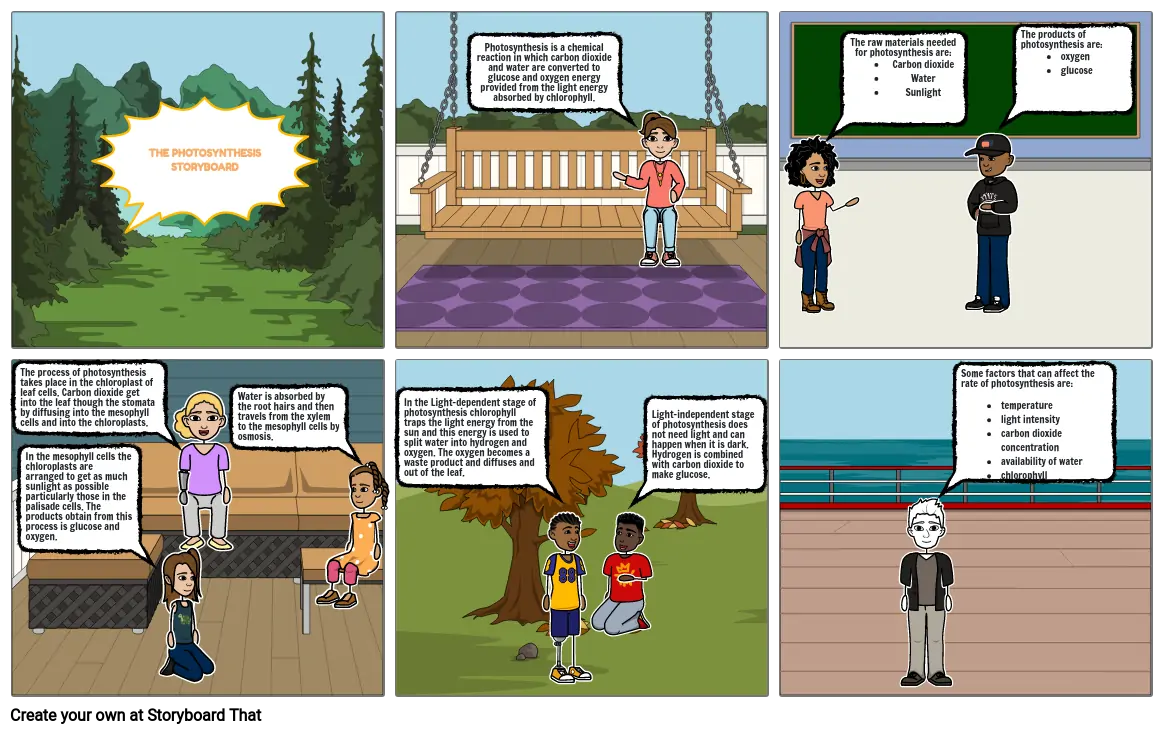Photosynthesis

Storyboard Text
- THE PHOTOSYNTHESIS STORYBOARD
- Photosynthesis is a chemical reaction in which carbon dioxide and water are converted to glucose and oxygen energy provided from the light energy absorbed by chlorophyll.
- The raw materials needed for photosynthesis are:Carbon dioxide Water Sunlight
- The products of photosynthesis are:oxygen glucose
- The process of photosynthesis takes place in the chloroplast of leaf cells. Carbon dioxide get into the leaf though the stomata by diffusing into the mesophyll cells and into the chloroplasts.
- In the mesophyll cells the chloroplasts are arranged to get as much sunlight as possible particularly those in the palisade cells. The products obtain from this process is glucose and oxygen.
- Water is absorbed by the root hairs and then travels from the xylem to the mesophyll cells by osmosis.
- In the Light-dependent stage of photosynthesis chlorophyll traps the light energy from the sun and this energy is used to split water into hydrogen and oxygen. The oxygen becomes a waste product and diffuses and out of the leaf.
- Light-independent stage of photosynthesis does not need light and can happen when it is dark. Hydrogen is combined with carbon dioxide to make glucose.
- Some factors that can affect the rate of photosynthesis are:temperature light intensity carbon dioxide concentration availability of waterchlorophyll
Over 30 Million Storyboards Created
No Downloads, No Credit Card, and No Login Needed to Try!
